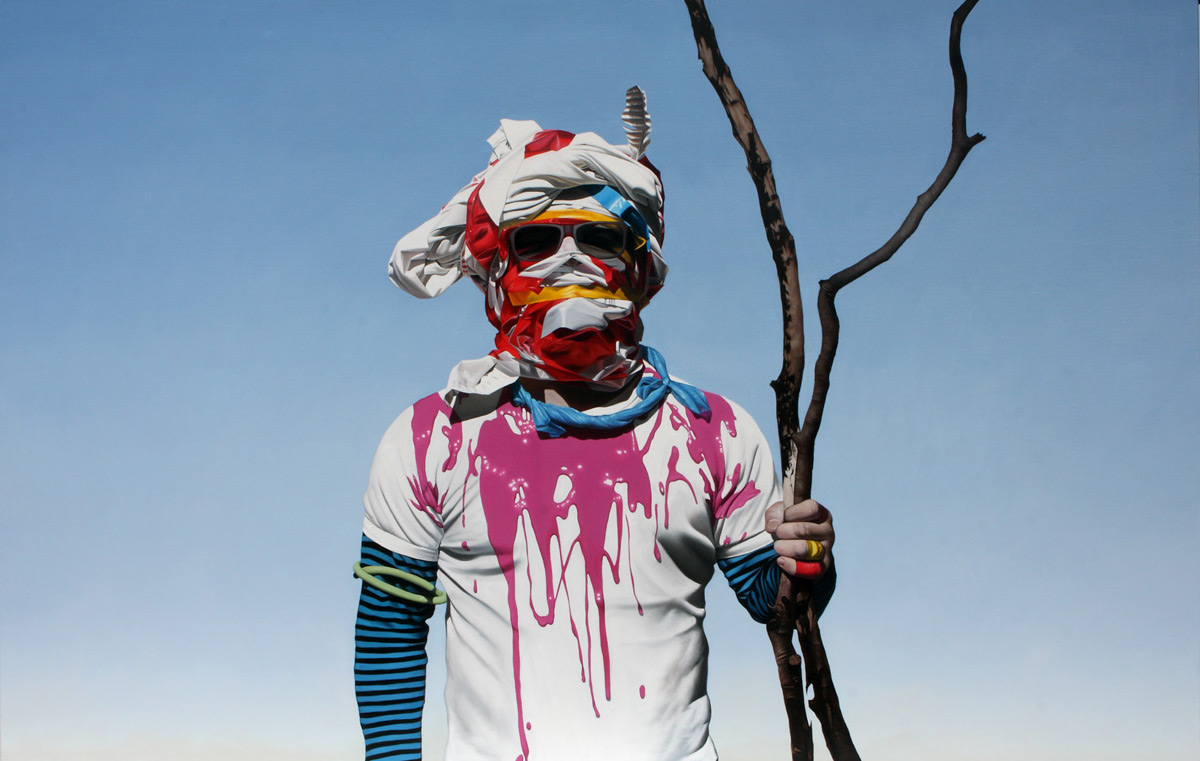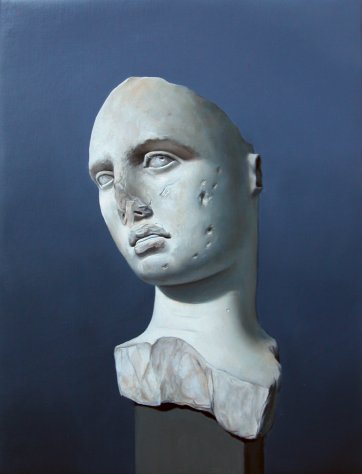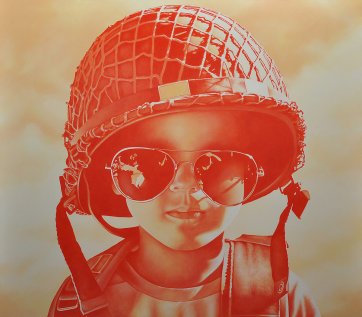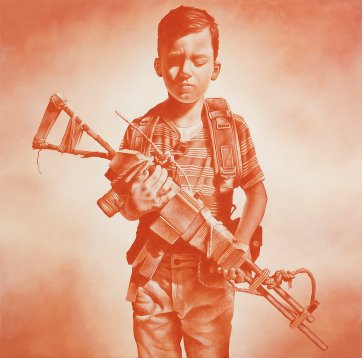‘… any being that stands outside of nature and might be described as a human subject can be said to possess consciousness of self, the capacity for self-reflection in which the self observes: I am myself part of nature.’
- Theodor W. Adorno, Problems of moral philosophy, 2000
A coincidence of intense self-reflection and the motif of the play-weapon occurs in the work of Melbourne artists Juan Ford and Michael Peck. These works confront the complex interaction of the natural self. Michael Peck remembers his childhood and now observes his own children: ‘It is not my intention in these works to glorify war but to pose the question of why we are interested in it as children and raise those ideas of innocence and experience.’ Partly inspired by the makeshift guns created by a friend’s child, the figurative spectre of Ford’s intensely introspective and physical ‘challenge, negotiation or war’ to make the work stands against blue skies: ‘The body’s neural function, nervous system, everything about the physical effort, is transmuted in the medium so the soul of the thing and the thought are embodied.’ Both Peck’s and Ford’s introspection is outward-looking and contextualised by the mind’s comprehension of the relationship between the self and the world.

















